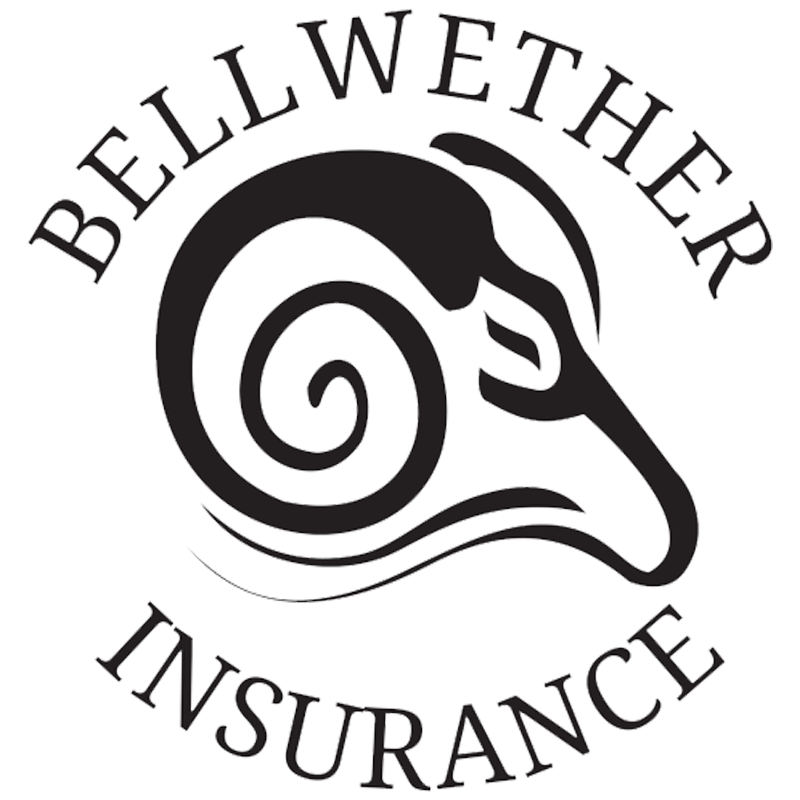Ohio Cleaning Company Insurance

Index
Understanding the Importance of Insurance for Cleaning Companies
Types of Insurance Coverage for Cleaning Companies
How to Choose the Right Insurance Provider
The Role of Insurance Agents and Brokers
Cost of Insurance for Cleaning Companies
Claims Process for Cleaning Companies
Best Practices for Maintaining Insurance Coverage
Contact Us
Phone
216-600-2828
Location
100 N. Center Street PO Box 627 LaGrange, OH 44050
In the bustling world of cleaning services, ensuring the safety and security of your business is paramount. Ohio
cleaning companies, whether they are small startups or established enterprises, must navigate the complex landscape of insurance. This guide will delve into the essential types of insurance, legal requirements, and best practices for securing coverage tailored to the unique needs of cleaning businesses in Ohio.
Understanding the Importance of Insurance for Cleaning Companies
Insurance is not just a legal requirement; it serves as a safety net that protects businesses from unforeseen circumstances. For cleaning companies, the risks can vary from property damage to employee injuries. Understanding these risks is the first step in determining the right insurance coverage. With the cleaning industry becoming increasingly competitive, having the right insurance can also enhance a company's reputation, demonstrating professionalism and reliability to potential clients.
Common Risks Faced by Cleaning Companies
Cleaning companies face a variety of risks that can lead to financial loss. These include:
- Property Damage: Accidental damage to a client's property can result in costly repairs and potential legal action.
- Employee Injuries: Cleaning often involves physical labor, which can lead to slips, falls, or other injuries on the job.
- Client Disputes: Disagreements regarding service quality or contract terms can lead to disputes that may require legal intervention.
By understanding these risks, cleaning companies can better prepare themselves through appropriate insurance coverage. Furthermore, investing in training programs for employees can significantly reduce the likelihood of accidents and disputes, fostering a safer work environment and enhancing overall service quality. This proactive approach not only mitigates risks but also contributes to employee morale and client satisfaction.
Legal Requirements in Ohio
Ohio does not have a one-size-fits-all approach to insurance requirements for cleaning companies. However, certain types of coverage are often mandated or highly recommended:
- Workers' Compensation: Required for businesses with employees, this insurance covers medical expenses and lost wages for workers injured on the job.
- Liability Insurance: While not legally required, it is strongly advised to protect against claims of negligence or property damage.
In addition to these essential coverages, cleaning companies in Ohio may also consider investing in additional policies such as
commercial auto insurance if they use vehicles for business purposes. This type of coverage protects against accidents that may occur while employees are driving to job sites, ensuring that both the company and its employees are safeguarded from potential liabilities. Moreover, specialized cleaning services, such as those dealing with hazardous materials or biohazard cleanup, may need to explore further insurance options tailored to their unique risks, ensuring comprehensive protection against the diverse challenges they face in their line of work.

Types of Insurance Coverage for Cleaning Companies
Cleaning companies can benefit from a variety of insurance policies. Understanding each type helps business owners make informed decisions about their coverage needs.
General Liability Insurance
General liability insurance is essential for cleaning companies. It protects against claims of bodily injury, property damage, and personal injury. For instance, if a client slips and falls while your team is cleaning their premises, this policy can cover medical expenses and legal fees. Additionally, it can safeguard against claims related to damage caused by cleaning products or equipment, ensuring that your business remains financially secure even in the face of unexpected incidents. This type of insurance not only provides peace of mind but also enhances your company’s credibility, as clients often prefer to work with insured businesses.
Commercial Auto Insurance
If a cleaning company uses vehicles to transport staff and equipment, commercial auto insurance is necessary. This coverage protects against accidents and damages involving company vehicles, ensuring that both the driver and the vehicle are adequately covered. Moreover, it can cover damages caused by uninsured or underinsured motorists, which is particularly important in urban areas where traffic accidents are more common. Having commercial auto insurance can also extend to cover the tools and equipment inside the vehicle, providing an additional layer of protection against theft or damage while on the road.
Workers' Compensation Insurance
As mentioned earlier, workers' compensation insurance is crucial for businesses with employees. It provides benefits to workers who are injured on the job, covering medical expenses and lost wages. In Ohio, this insurance is mandatory for most employers, making it a vital consideration for cleaning companies. Beyond legal compliance, investing in workers' compensation can foster a safer workplace culture. When employees know they are protected, they may feel more secure and valued, which can lead to increased productivity and lower turnover rates. Furthermore, this insurance can also cover rehabilitation costs for employees recovering from injuries, ensuring they receive the support they need to return to work effectively.
Beyond the basic types of insurance, cleaning companies may want to consider additional coverage options to further protect their business.
Professional Liability Insurance
Professional liability insurance, also known as errors and omissions insurance, protects against claims of negligence or inadequate work. For example, if a client believes that a cleaning job was not performed to standard, this insurance can help cover legal costs associated with defending against such claims. This type of coverage is especially crucial for companies that offer specialized services, such as carpet cleaning or post-construction clean-up, where the stakes are higher and the expectations from clients are often more stringent.
Additionally, having professional liability insurance can enhance a cleaning company's credibility. Clients are more likely to trust a business that is insured against potential errors, as it demonstrates a commitment to high standards and accountability. This can be a significant selling point when competing for contracts, particularly with larger organizations or commercial clients who may require proof of insurance as part of their vendor selection process.
Equipment and Property Insurance
Cleaning companies rely heavily on equipment and supplies. Equipment and property insurance can protect against theft, loss, or damage to cleaning tools and supplies. This coverage is particularly important for businesses that invest significantly in specialized equipment. For instance, high-quality steam cleaners, industrial vacuums, and eco-friendly cleaning supplies can represent a substantial financial investment, and losing these assets could severely impact operations.
Moreover, equipment and property insurance can also extend to cover the physical locations where cleaning supplies are stored, whether it's a dedicated office space or a vehicle used for transporting equipment. This means that in the event of a burglary or an accident, the business can recover more quickly without incurring significant out-of-pocket expenses. Regularly updating inventory lists and ensuring that all equipment is properly insured can help cleaning companies maintain operational efficiency and financial stability.
Business Interruption Insurance
Business interruption insurance can be a lifesaver in the event of a disaster that disrupts business operations. Whether due to a natural disaster or a fire, this insurance helps cover lost income and ongoing expenses during the recovery period. It can be particularly beneficial for cleaning companies that may face sudden disruptions, such as a pandemic, which can lead to a significant decrease in demand for services.
This type of insurance not only provides financial support during tough times but also allows business owners to focus on recovery without the added stress of financial burdens. It can cover fixed costs such as rent, utilities, and payroll, ensuring that the business can maintain its obligations even when income is temporarily halted. Furthermore, having a robust business interruption plan in place, including insurance, can help cleaning companies navigate unforeseen challenges more effectively, allowing them to bounce back stronger and more resilient than before.
How to Choose the Right Insurance Provider
Selecting the right insurance provider is a critical decision that can impact the overall health of a cleaning business. Here are several factors to consider when choosing an insurance company.
Researching Insurance Companies
Start by researching various insurance companies that specialize in coverage for cleaning businesses. Look for companies with strong reputations, positive customer reviews, and a history of providing reliable service. Online reviews and testimonials can provide valuable insights into the experiences of other cleaning companies.
Understanding Policy Terms
Before committing to any insurance policy, it is essential to thoroughly understand the terms and conditions. Pay close attention to coverage limits, exclusions, and deductibles. If any terms are unclear, do not hesitate to ask the insurance agent for clarification.
Getting Multiple Quotes
Obtaining quotes from multiple insurance providers allows for comparison of coverage options and pricing. This process not only helps in finding the best deal but also provides insight into what different companies offer. Be sure to compare similar coverage levels to ensure an accurate comparison.

The Role of Insurance Agents and Brokers
Insurance agents and brokers can be invaluable resources for cleaning companies seeking coverage. They can help navigate the complexities of insurance options and find policies that best suit the specific needs of the business.
Benefits of Working with an Insurance Agent
Working with an insurance agent has several advantages:
- Expert Guidance: Agents have in-depth knowledge of the insurance market and can provide personalized advice based on the unique needs of the cleaning business.
- Time-Saving: Agents can save business owners time by researching and comparing various policies on their behalf.
- Claims Assistance: In the event of a claim, agents can guide business owners through the process, ensuring that all necessary documentation is submitted correctly.
Choosing Between an Agent and a Broker
While both agents and brokers can help find insurance, there are key differences. Agents typically represent one insurance company, while brokers work with multiple insurers. Depending on the needs of the cleaning business, one option may be more suitable than the other.
Cost of Insurance for Cleaning Companies
The cost of insurance for cleaning companies can vary widely based on several factors. Understanding these factors can help business owners budget for their insurance needs.
Factors Influencing Insurance Costs
Several factors can affect the cost of insurance premiums for cleaning companies:
- Business Size: Larger companies with more employees and higher revenue may face higher premiums due to increased risk.
- Location: The geographical area in which the business operates can impact rates, as certain locations may have higher crime rates or more frequent natural disasters.
- Coverage Levels: The more comprehensive the coverage, the higher the premium. Business owners must balance their need for coverage with their budget constraints.
Ways to Lower Insurance Costs
While insurance is a necessary expense, there are strategies to help lower costs:
- Bundle Policies: Many insurance providers offer discounts for bundling multiple policies, such as general liability and workers' compensation.
- Increase Deductibles: Opting for a higher deductible can lower premiums, but it is essential to ensure that the business can afford the deductible in the event of a claim.
- Maintain a Good Safety Record:
Implementing safety protocols and maintaining a good claims history can lead to lower premiums over time.
Claims Process for Cleaning Companies
Understanding the claims process is crucial for cleaning companies to ensure they are prepared in the event of an incident. Knowing how to navigate this process can make a significant difference in the outcome of a claim.
Steps to Take After an Incident
In the event of an incident, such as property damage or employee injury, follow these steps:
- Document the Incident: Take photos, gather witness statements, and document all relevant details about the incident.
- Notify the Insurance Provider: Contact the insurance company as soon as possible to report the incident and initiate the claims process.
- Follow Up: Stay in communication with the insurance adjuster and provide any additional information or documentation they may require.
Common Challenges in the Claims Process
Cleaning companies may encounter various challenges during the claims process, including:
- Delays: Claims can take time to process, leading to frustration for business owners who are eager to resolve the issue.
- Disputes Over Coverage: Sometimes, insurance companies may dispute the claim based on policy exclusions or other factors.
- Insufficient Documentation: Failing to provide adequate documentation can lead to claim denials or delays. Claims can take time to process, leading to frustration for business owners who are eager to resolve the issue.
- Disputes Over Coverage: Sometimes, insurance companies may dispute the claim based on policy exclusions or other factors.
- Insufficient Documentation: Failing to provide adequate documentation can lead to claim denials or delays.
Best Practices for Maintaining Insurance Coverage
Once a cleaning company has secured insurance coverage, it is essential to maintain that coverage effectively. Following best practices can help ensure that the business remains protected over time.
Regularly Review Insurance Policies
As a business evolves, so do its insurance needs. Regularly reviewing insurance policies ensures that coverage remains adequate. This review should occur at least annually or whenever there are significant changes in the business, such as expansion or the addition of new services.
Stay Informed About Industry Changes
The cleaning industry is subject to changes in regulations, safety standards, and best practices. Staying informed about these changes can help business owners adjust their insurance coverage accordingly and ensure compliance with any new legal requirements.
Engage in Risk Management Practices
Implementing risk management practices can help reduce the likelihood of incidents that may lead to claims. This includes regular training for employees on safety protocols, maintaining equipment, and conducting thorough background checks on staff.
Conclusion
For cleaning companies in Ohio, understanding the intricacies of insurance is essential for protecting the business and ensuring long-term success. By securing the right coverage, staying informed about industry changes, and implementing best practices, cleaning companies can navigate the challenges of the industry with confidence. Investing in comprehensive insurance not only safeguards the business but also enhances its reputation and reliability in the eyes of clients.
In a competitive market, having the right insurance can be the difference between thriving and merely surviving. As the cleaning industry continues to grow, so does the importance of ensuring that businesses are adequately protected against potential risks. By taking the time to understand insurance options and working with knowledgeable professionals, cleaning companies can focus on what they do best—providing exceptional cleaning services to their clients.


